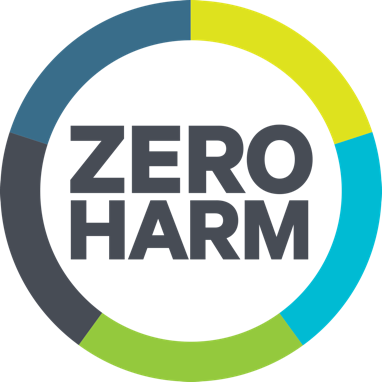The material issues addressed in this report directly reflect priorities identified for Downer and our stakeholders, in line with GRI Standards requirements.
In 2017, KPMG facilitated a materiality assessment via a series of workshops across the business to identify issues material to Downer. This year a consultative review process was undertaken to confirm and identify any new material priority issues through reviews of risk registers, industry ESG ratings, media analysis and peer reviews and engagement with key stakeholders. This ensures our reporting reflects significant economic, environmental and social issues that may influence the assessments and decisions of stakeholders.
In 2015, the United Nations agreed on 17 Sustainable Development Goals (SDGs) as part of a 2030 Agenda for Sustainable Development to: end poverty, promote prosperity and wellbeing for all, and protect the planet. Downer is a supporter of the SDGs and we recognise that we are well placed within the sectors we service to contribute to the SDGs. In this year’s report we have aligned our material issues to the SDGs and demonstrated Downer’s contribution to deliver on the SDGs.
Material Issues
Resilience
Interest
- Financial returns
- Operational efficiency and productivity
- Sustainable strategic growth
- Enduring, collaborative partnerships
- JV and overseas risks
- Innovation
See further details in the 2018 Annual Report.
Issue relevance to broader value chain
Suppliers
Sub-contractors
Customers
JVs and alliances
Community
Investors
Sustainable development goals





Interest
- Talent attraction and retention of skilled employees
- Diversity and inclusiveness
- Employee development and capability
- Leadership and knowledge management
Issue relevance to broader value chain
Suppliers
Sub-contractors
Customers
JVs and alliances
Regulators
Community
Sustainable development goals




and Safety
Interest
- Managing health and safety risks with a focus on critical risks
- Maintaining a high standard Zero Harm culture through accountability
- Employee health and wellbeing
Issue relevance to broader value chain
Suppliers
Sub-contractors
Customers
JVs and alliances
Regulators
Sustainable development goals

Interest
- Legislative and regulatory compliance and impact minimisation
- GHG emission reduction
- Climate change related risks
- Responding to emerging issues and industry trends
Issue relevance to broader value chain
Suppliers
Sub-contractors
Customers
JVs and alliances
Regulators
Sustainable development goals





Interest
- Employment and training opportunities
- Local purchasing
- Community investment
- Socio economic benefits
Issue relevance to broader value chain
Suppliers
Sub-contractors
Customers
JVs and alliances
Community
Sustainable development goals




Interest
- Legislative and regulatory compliance
- Risk management
- Standards of business conduct
- Continuous improvement
Issue relevance to broader value chain
Suppliers
Sub-contractors
Customers
JVs and alliances
Investors
Sustainable development goals


Interest
- Financial returns
- Operational efficiency and productivity
- Sustainable strategic growth
- Enduring, collaborative partnerships
- JV and overseas risks
- Innovation
See further details in the 2018 Annual Report.
Issue relevance to broader value chain
Suppliers
Sub-contractors
Customers
JVs and alliances
Community
Investors
Sustainable development goals





Interest
- Talent attraction and retention of skilled employees
- Diversity and inclusiveness
- Employee development and capability
- Leadership and knowledge management
Issue relevance to broader value chain
Suppliers
Sub-contractors
Customers
JVs and alliances
Regulators
Community
Sustainable development goals




Interest
- Managing health and safety risks with a focus on critical risks
- Maintaining a high standard Zero Harm culture through accountability
- Employee health and wellbeing
Issue relevance to broader value chain
Suppliers
Sub-contractors
Customers
JVs and alliances
Regulators
Sustainable development goals

Interest
- Legislative and regulatory compliance and impact minimisation
- GHG emission reduction
- Climate change related risks
- Responding to emerging issues and industry trends
Issue relevance to broader value chain
Suppliers
Sub-contractors
Customers
JVs and alliances
Regulators
Sustainable development goals





Interest
- Employment and training opportunities
- Local purchasing
- Community investment
- Socio economic benefits
Issue relevance to broader value chain
Suppliers
Sub-contractors
Customers
JVs and alliances
Community
Sustainable development goals




Interest
- Legislative and regulatory compliance
- Risk management
- Standards of business conduct
- Continuous improvement
Issue relevance to broader value chain
Suppliers
Sub-contractors
Customers
JVs and alliances
Investors
Sustainable development goals


Downer recognises that our business operations have a direct impact on a wide range of stakeholders. To ensure we are capturing the most relevant material issues in this report, we continually review issues raised by our stakeholders. These reviews inform the issues raised above.


